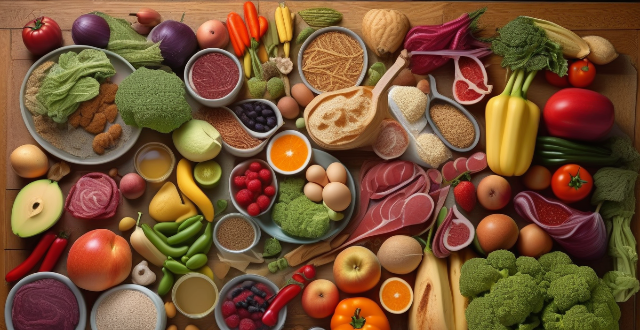Personal hygiene is critical for food handlers due to its impact on health, safety, and quality assurance. Cross-contamination and allergen transfer can lead to illnesses, while cleanliness affects food presentation and flavor. Handwashing, proper grooming, and workstation cleaning are essential practices to maintain hygiene.

Why is Personal Hygiene Important for Those Who Handle or Prepare Food?
Personal hygiene is of utmost importance for individuals who handle or prepare food, as it directly impacts the safety and quality of the food they serve. Neglecting personal hygiene can lead to a range of health issues and compromise the overall dining experience for customers. In this article, we will discuss the significance of personal hygiene in the food industry and provide some tips on maintaining good hygiene practices.
Health and Safety Concerns
Cross-Contamination
Poor personal hygiene can result in cross-contamination, which occurs when harmful bacteria or viruses are transferred from one surface to another. This can happen when an individual touches contaminated surfaces, such as raw meat or poultry, and then touches other foods or utensils without properly washing their hands. Cross-contamination can cause foodborne illnesses, including salmonellosis, E. coli infections, and norovirus.
Allergens and Sensitivities
Food handlers with poor personal hygiene may also unknowingly transfer allergens or sensitivities to food items. For example, if a person with peanut residue on their hands touches a sandwich intended for someone with a peanut allergy, it could result in a severe allergic reaction. Proper handwashing and avoiding contact with known allergens are crucial in preventing such incidents.
Quality Assurance
Appearance and Presentation
Food handlers who maintain good personal hygiene contribute to the overall appearance and presentation of the food they serve. Cleanliness and tidiness are essential aspects of food service, as they create a positive impression on customers and enhance their dining experience. On the other hand, dirty or unkempt appearances can deter customers and damage the reputation of the establishment.
Flavor and Aroma
Proper personal hygiene also affects the flavor and aroma of the food being prepared. Strong body odors, perfumes, or smoking can alter the taste and smell of food items. Food handlers must be mindful of their personal scents and avoid using strong fragrances while working to ensure that the food retains its natural flavors and aromas.
Tips for Maintaining Good Hygiene Practices
Handwashing
Regular handwashing is one of the most effective ways to prevent the spread of germs and maintain good personal hygiene. Food handlers should wash their hands:
* Before starting work
* After using the restroom
* After handling garbage or cleaning tasks
* Before and after handling different types of food (e.g., raw meat vs. vegetables)
Use warm water and soap, scrubbing hands for at least 20 seconds, then rinse thoroughly under running water. Dry hands with a clean towel or air dryer.
Personal Grooming
Food handlers should adhere to certain grooming standards to maintain good personal hygiene. This includes:
* Keeping hair tied back or covered to prevent it from falling into food
* Wearing clean, neat clothing and aprons
* Avoiding wearing jewelry that cannot be easily sanitized (e.g., bracelets, rings)
* Covering any open wounds with waterproof bandages or gloves
Workstation Cleaning
Maintaining a clean work environment is essential for good personal hygiene. Food handlers should:
* Wipe down surfaces regularly with sanitizer or hot, soapy water
* Clean equipment after each use, following manufacturer instructions
* Store ingredients properly to prevent spoilage or contamination
* Dispose of garbage and waste promptly and appropriately
In conclusion, personal hygiene is crucial for those who handle or prepare food, as it directly impacts the health and safety of consumers as well as the quality of the dining experience. By following proper handwashing techniques, adhering to personal grooming standards, and maintaining a clean work environment, food handlers can ensure that they are contributing to a safe and enjoyable dining experience for their customers.